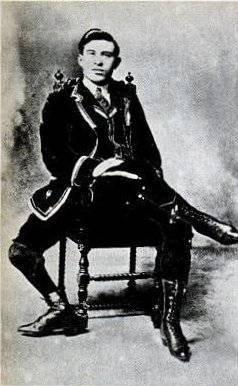Half of the harm that is done in this world
Is due to people who want to feel important.
— T.S. Eliot
Half of the harm that is done in this world
Is due to people who want to feel important.
— T.S. Eliot
Massachusetts’ Lake Chargoggagoggmanchauggagoggchaubunagungamaugg has the longest place name in the United States.
Locals call it Webster Lake.

Mathematician Thomas Storer offers a foolproof way to foretell the future: Flip a penny and ask it a yes-or-no question. Heads means yes, tails means no.
How can you be sure the answer is accurate? Simple: Flip it again and ask, “Will your present answer have the same truth value as your previous answer?”
Since all the outcomes agree, the penny’s original response is guaranteed to be correct.
‘In the foot of an elm, of the bigness of a pretty corpulent man, three or four feet above the root, and exactly in the centre, has been found a live toad, middle-sized, but lean, and filling up the whole vacant space: no sooner was a passage opened, by splitting the wood, than it scuttled away very hastily: a more firm and sound elm never grew; so that the toad cannot be supposed to have got into it. …’ This is attested by M. Hubert, professor of philosophy at Caen.
— The London Encyclopaedia, 1839
Raymond Smullyan doesn’t believe in astrology.
When asked why, he says, “I’m a Gemini.”

In April 1828, Ann Marten was growing increasingly worried about her daughter, Maria. The girl had eloped recently from Suffolk with her lover, William Corder, but Ann had not heard from her since. Corder gave various explanations: A letter had been lost, he said, or Maria was ill or had hurt her hand.
One night Ann awoke her husband in great agitation: She had had a vivid dream, she said, that their daughter’s body was buried under the “right-hand bay of the further side of Corder’s red barn,” where the couple had met to begin their journey. She persuaded her husband to investigate, and to their horror he discovered their daughter’s body buried in a sack just where her dream had indicated.
The case made a sensation. Corder was retrieved and tried and eventually confessed: He had shot Maria in the eye during an argument in the barn. He was hanged in August and his body left for medical students, and the rope was sold at a guinea an inch to the morbid throng. The dream was never explained.
Light travels 186,000 miles per second. The average diameter of Earth’s orbit is 186 million miles.
So, on average, sunlight reaches us in a neat 500 seconds.
mouton enragé
n. a normally peaceful person who has become suddenly enraged or violent
Literally, “angry sheep.”

It’s somehow appropriate that Francesco Lentini was born in Italy, “the boot of Europe.” He had three legs, four feet, and 16 toes — his third leg had a rudimentary foot growing from the knee.
When doctors determined they couldn’t safely remove the extra parts, Lentini moved to the United States and made a career kicking soccer balls in sideshows. Eventually he married and raised four children.
He died in 1966 at age 77, setting a record as the longest-lived man with three legs.
At five o’clock in the afternoon of October 19th, 1874, an immense concourse of people assembled in the city of Cincinnati, Ohio, to witness the ascent of a bride and bridegroom in a balloon to be married in the air by a clergyman who ascended with them, and delivered an address to the crowd before the machine was set free. The couple were horse-riders in a circus, and the idea was, no doubt, that of combining business with pleasure, since hundreds would be curious to see them in the circus after their marriage, who, before that remarkable event took place, would only regard them with the ordinary amount of curiosity due to their skill as riders.
— The World of Wonders, 1883